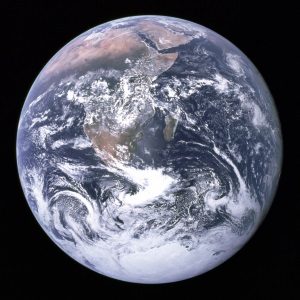Why The World Climate Change Conference 2015 Is Doomed To Fail
The planet earth is in a parlous state. Many people know and even experience the damaging effects of climate change every day through unpredictable and severe weather events and the destruction of the very lands in which they live. It strikes a particularly deep chord for Celtic peoples and those of Celtic descent. Because our landscape, seas and geographic location has played a pivotal role in our history, beliefs and recognition of ourselves.
The rises in greenhouse gases that are now recognised to be the major factor behind the rapid rise in Earth’s temperatures at this time have to be halted, but more than that there has to be a plan that sees them reduced significantly year by year. Crucially the whole issue of population growth has to be tackled. The truth is that on a finite planet, nothing physical can grow indefinitely. The more of us there are, the fewer resources there are for each of us and members of other species with which we share the planet.
This week Paris has hosted the United Nations Climate Change Conference. A document will be produced that will be hailed as an agreement but it will be meaningless. Because the United Nations ignores the whole issue of population growth while at the same time managing to point to the problems it causes. It acknowledges this by such statements in ‘The Secretary-General’s High-Level Panel of Eminent Persons on the Post-2015 Development Agenda’ report which states ‘We must act now to slow the alarming pace of climate change and environmental degradation, which pose unprecedented threats to humanity.’ However, the question of human population size cannot be ignored because it is fundamental to the questions of sustainability and only resources that can be sustained indefinitely can support humanity in the long term.
As pointed out by the campaigning organisation Population Matters in a recent article ‘UN body ignores population growth’ - ‘World population, which has tripled in 60 years from 2.5 billion in 1950 to more than seven billion today, is projected to grow to 9.5 billion by 2050 and 11 billion by 2100.’ The Paris climate change talks that end today will fail if they do not address the issue of world population growth. It is crucial that urgent action is taken to combat climate change and its impacts. A plan is needed to conserve and sustainably use the oceans, seas and marine resources for sustainable development. That protects, restores and promotes sustainable use of terrestrial ecosystems, sustainably manages forests, combats desertification, and halts and reverses land degradation and halt biodiversity loss.
As pointed out by naturalist and broadcaster David Attenborough in his acclaimed documentary The Life of Mammals (2002):
“Three and a half million years separate the individual who left these footprints in the sands of Africa from the one who left them on the moon. A mere blink in the eye of evolution. Using his burgeoning intelligence, this most successful of all mammals has exploited the environment to produce food for an ever-increasing population. In spite of disasters when civilisations have over-reached themselves, that process has continued, indeed accelerated, even today. Now mankind is looking for food, not just on this planet but on others. Perhaps the time has now come to put that process into reverse. Instead of controlling the environment for the benefit of the population, perhaps it's time we control the population to allow the survival of the environment."

- Alastair Kneale's blog
- Log in to post comments






